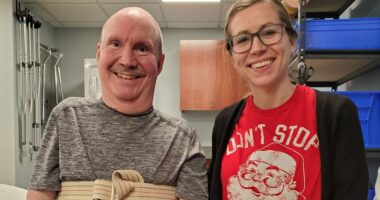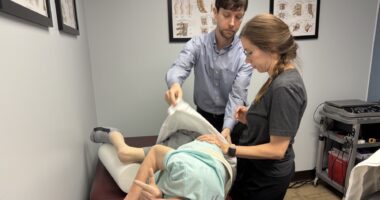Respiratory Care in SMA
Airway Clearance
Improving airway clearance is an important part of respiratory care for many SMA patients, but there are also specific times when airways clearance is particularly important. For instance, it is critical for the successful preoperative and postoperative management of SMA patients. Understanding patients’ need for airway clearance during sleep is also vital.
Management of Breathing Difficulty
SMA is associated with a loss of respiratory function that correlates with the severity of the disease phenotype. Dyspnea is reported by some to be the most common symptom in patients with SMA. Respiratory failure is a common cause of death in fatal forms of SMA. There are chronic, acute, and palliative ways to manage difficulty breathing.
Intubation and Extubation
Intubation in SMA can be difficult or impossible, but the need for endotracheal intubation in SMA patients is increasing. In SMA type 1, respiratory failure can require frequent intubation in children ages three and below. In cases where intubation is required, healthcare providers must consider when and how extubation will take place.
Retained Secretions and Aspiration
Children with SMA types 0 and 1 have significant weakness in bulbar and respiratory muscles, which can lead to difficulty in managing secretions. Reduced secretion clearance is a risk factor for acute respiratory decompensation. Aspiration is common in SMA type 1 and can lead to fatal complications.
Chest Physiotherapy and Pulmonary Care
Respiratory problems are the leading cause of acute illness and chronic disability in infants and children with SMA. Among children with SMA type I and type II, respiratory issues are the most common cause of death. Noninvasive respiratory care interventions can prolong the lives of children with SMA when started early. As such, particular attention should be focused on providing consistent, high-quality chest physiotherapy starting from the initial diagnosis.
Perioperative Considerations
Surgery is frequently needed for both diagnostic and treatment purposes in patients with neuromuscular disorders like SMA. Optimizing perioperative care in these patients requires a multidisciplinary team that can collaborate to anticipate and prevent complications and reduce associated morbidity and mortality. Respiratory failure is one of the greatest risks associated with operations in those with neuromuscular disorders and can lead to the need for long-term ventilation.


